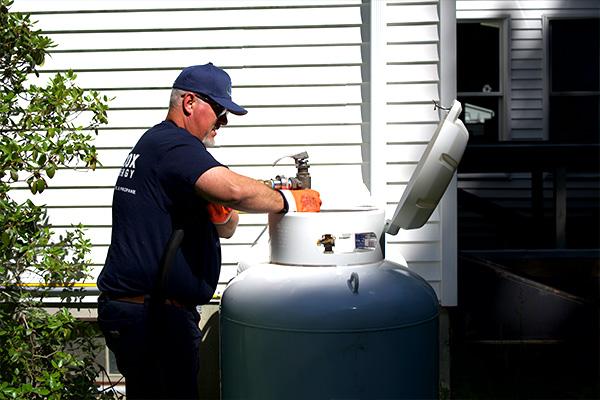Are You Missing Revenue on Your Propane Delivery Slips?

Propane delivery is more than just gallons pumped. It’s also a key opportunity to capture extra revenue through add-ons like tank rentals, late fees, minimum delivery charges, or on-site services. But if those add-ons aren’t properly tracked, logged, and billed, you may be missing income that should already be yours. A small error on a delivery slip might not seem like much – until you multiply it by hundreds of deliveries over a month.
If you’re not regularly auditing your delivery slips, there’s a good chance some of that money is slipping through the cracks. The good news? With a consistent review process, you can find those missed charges and fix the system that allowed them to fall through. Here’s how that is done.
Start with the Physical and Digital Trail
The first step is to gather a random sample of recent delivery slips – either paper or digital – along with corresponding invoices. Look for common add-ons your company is supposed to charge for, such as tank rentals, reconnect fees, priming charges, or after-hours services. Compare what the driver noted with what made it onto the customer’s bill.
If there’s a mismatch, ask yourself where the breakdown happened. Did the driver forget to record the service? Was it written down but never entered into the system? Was the dispatcher unaware of the policy? Pinpointing the weak spots helps you improve the process, not just fix the one slip.
Check for Missing Routine Charges
Beyond one-time add-ons, ensure that routine fees – like tank lease charges or delivery minimums – are showing up where they should be. If a customer hasn’t been charged a tank rental in three months, that may be a billing issue. If a minimum delivery fee is skipped when it should apply, that’s money left behind.
Also, review the gallons delivered versus what’s been billed. Some slips might show more propane pumped than what’s on the invoice, especially if the driver didn’t round properly or there was a system sync issue.
Match Driver Notes with Work Performed
Many propane drivers write quick field notes about extra work they do – relighting pilots, replacing hoses, performing quick leak checks – but those notes never reach the billing team. Encourage your drivers to be specific and thorough in their notes, not just for safety records but also to support billing accuracy.
Your team should develop a standard way to code or note every add-on service on the slip, and your back office should be trained to catch those services and charge for them. Double-checking all records can highlight dozens of dollars per slip and hundreds across a route. These “small” catches all add up to big earnings you may consistently be missing out on.
Audit Regularly and Teach the Team
A one-time audit is helpful, but a monthly or quarterly audit builds long-term revenue protection. Train your dispatcher, billing staff, and drivers on what to look for and how their roles connect. When the team sees how a missed $20 reconnect fee affects the bottom line, they’ll start catching these gaps themselves.
Also, consider setting up a quick checklist for your billing staff to utilize when reviewing each slip or digital entry for the top five most commonly missed items. This will make their review process much more accurate, efficient, and consistent across the board.
Build Habits That Keep Add-On Revenue Consistent
Add-on income is often the difference between a slim and substantial profit. These charges may seem insignificant, but they add up quickly, especially when propane margins are tight. If you’re not charging for the full scope of your company’s work, you’re leaving money on the table that could be in your pockets instead. By building these strong habits around delivery slip audits, you will ensure that your business gets paid for every service it provides.
Stronger Audits = Stronger Businesses
A propane business that watches its slips closely captures more income and builds better systems. By implementing this proactive measure, you protect your margins well, avoid underbilling, and give your team the structure they need to succeed. That extra revenue can help you reinvest in trucks, training, or service upgrades – all without having to raise prices. When your delivery slips match your service standards, your customers get the full value of what they’re paying for, and your business grows stronger from the inside out.














